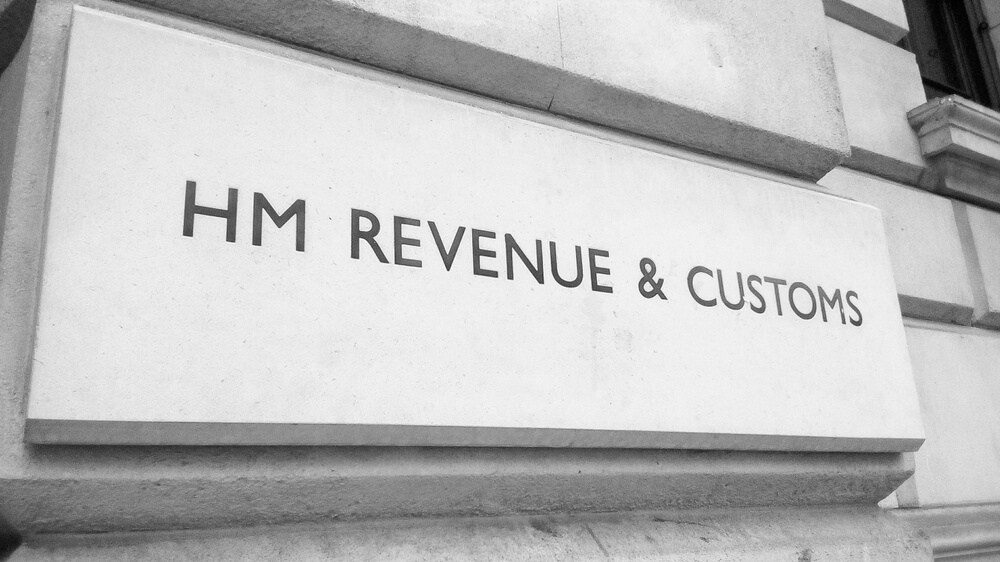What is IR35?
If you are a contractor who operates under their own limited company then awareness of IR35 is paramount.
First introduced in 2000 by HMRC, IR35 was created with the intention of preventing ‘off-payroll working’. This describes the practice of contracted workers operating as an employee for an employer in all but name. When this occurs the same levels of tax and national insurance contributions are not paid by the contractor, which IR35 legislation seeks to prevent.
Failure to understand the ramifications of a successful IR35 investigation from the HMRC can put you under extreme financial pressure. Even if the investigation finds you are not in violation, without the correct IR35 liability insurance you can end up footing the bill for resulting legal costs.
What can IR35 Liability Insurance protect from?
An IR35 insurance policy is designed to provide the support required when the HMRC opens an enquiry against you. The correct coverage can provide you with legal assistance throughout the investigation, including costs related to legal defence in court if required.
What does IR35 Insurance not cover?
While IR35 insurance will give you the support on covering the resulting legal assistance from a claim it is primarily designed as a legal assistance cover. A policy will also assist in the effort from accountants to create up to date versions.
The policy will not cover any tax payments that may result from an investigation from HMRC.

What can cause HMRC to trigger an IR35 investigation?
The HMRC has two avenues for beginning a formal investigation against you. Firstly ‘direct’, meaning you have met the HMRC’s criteria for reviewing your accounts. This criteria is not specifically disclosed, for obvious reasons, however, it’s fair to say even something as rudimentary as paying yourself a low salary and high dividends can trigger a direct investigation.
In contrast, an ‘indirect’ enquiry will likely be as a result of an unrelated investigation from the HMRC. This could occur when there is a review conducted on your declared VAT, and HMRC wishes to also check your IR35 status to investigate you further.
How far back can the HMRC bring an IR35 investigation against me?
While there is a 3 tier system when it comes to the lookback period of bringing a claim, the guide is not as clear as it may seem. Much like the criteria for direct enquiries related to IR35, the distinctions between how far back claims to be made are fairly vague.
The potential statute of limitations for an IR35 investigation are:
4 years – for what the HMRC deems as simple errors that were not made with negligence or deceitful intent
6 years – allows HMRC to investigate you for what it deems careless behaviour
20 years – if you’ve been perceived as specifically participating in fraudulent activity or intentional tax avoidance
While the window of 20 years is relatively clear for most, the distinction between 4 and 6 years is certainly less specific. In any case, it is with the HMRC themselves to provide the proof of careless or deliberate behaviours.
When taking out IR35 liability insurance the policy can immediately apply to previous tax years, so cover for all 3 bands of HMRC investigation will apply.
More information on the specifics of what the HMRC considers reasonable care in this regard can be found in their compliance handbook.

What steps can I take to prepare myself in case an investigation is made against me?
Often when thinking about IR35 you are considered ‘outside’ or ‘inside’. When you operate as a contractor, in HMRC’s definition, then you are considered outside of IR35 which means you can operate as your own company.
Being inside IR35 means that when operating as a contractor you are essentially an employee in all but name. When the HMRC believes that you are inaccurately portraying yourself as outside for IR35 is when an investigation can be raised against you. To prepare for this some proactive steps include:
Be able to prove that you have your own business insurance
Having relevant and extensive cover for in your own business’ name is an instant signal that you are operating as your own limited company.
Portraying a suite of relevant cover as your own business could include:
- Professional Indemnity Insurance
- Public Liability Insurance
- Cyber & Data Insurance
- Business Interruption Insurance
Highlight the ways your work situation differs from employees
The core of an IR35 investigation is assessing if you operating as an employee. As such understanding and drawing distinctions in your working relationship is important. Some areas where you will differ from traditional employees include:
- No minimum hours
- No pension arrangements
- No company benefits
- The employer can stipulate where and how work is to be carried out.
The criteria above applying to your work aren’t important, what is essential is being able to prove that it applies to you.
Keep client correspondence
Emails can provide a good amount of insight into the working relationship of a contractor and company. Ensure your emails are available to you and evidence shows the true working arrangement, in that a manager cannot control your work and that you simply provide a service.
Don’t name your company after yourself
If your company has a more ‘business-like’ name it emphasises the fact that your company is distinct from you, and that you could delegate the work to another person if necessary. Employees cannot delegate in this way, so it marks you out as your own limited company with the potential to expand where necessary.
Have your own marketing materials
You should be able to demonstrate that you market your contracting services. Have a relevant website, post adverts and print business cards. This helps indicate that you are in business on your own account.
Avoid distributing any client material, including business cards with your name on them. It’s also important to ensure that you avoid updating tools like LinkedIn to reflect an employer/employee relationship.
Maintain Business Software Licences and Professional Memberships
When using professional tools it’s important to hold your own licenses, even something like Microsoft Office can help show that you operate independently. If there are memberships to professional bodies that you would be a part of then ensure you are registered in your own company name.
Invest in your own professional development
Employees don’t pay for their own training. If you pay for yours this will be another useful point of difference. Some professions require continued professional development (CPD) to remain qualified, so by paying for this you’re also reasserting your contractor status.
Try to have multiple clients at the same time
If you split time fairly and evenly between two or more main clients, it’s much harder for HMRC to claim you’re an employee of any of them. However, having a very uneven split may be less convincing, if your revenue comes mostly from one company then you may struggle to prove you are not an employee in all but name.
Obtain IR35 Liability Insurance
Knowing that an investigation could be around the corner means that ensuring you are protected from the financial burden of legal action is imperative. We can help source the correct IR35 insurance policy for you, which will then instantly provide you with support even on backdated claims.

Am I required to have IR35 Insurance?
No – there is no obligation as a contractor to carry IR35 insurance.
Without IR35 liability insurance, the process with HMRC will be similar, but you will need to acquire and pay for your own legal representation. A relevant policy gives access to legal experts that are experienced in defending contractors from these types of claims, so can help increase the chances of success if taken to court.
How much does IR35 liability insurance cost?
While not a traditionally expensive policy, costs to contractors can vary based on a number of criteria, including:
- Industry
- Revenue stream
- Previous history of HMRC claims
For a full quotation on the ideal IR35 insurance policy for your business get in touch with our expert brokers today.
Will I be affected by the proposed IR35 reforms?
If you are currently a contractor the effect of IR35 reforms coming in April 2021 will vary based on who your clients are. The intent of these reforms, which have been delayed a year following the COVID-19 pandemic, is to shift some responsibility for declarations relating to IR35 onto the end client.
From April 2021 it will be the end clients responsibility to determine whether a worker is an employee or a contractor for tax purposes. They will have to issue a Status Determination Statement to their contractors, which makes their IR35 status clear and explains why.
Providing they can support their decision with sufficient evidence and file the appropriate tax documents, they should avoid any penalties. In keeping with this, relevant businesses should begin to consider the following:
- Reviewing all their relationships with contractors and/or consultants
- Making sure their terms of engagement are clear and accurate
- Providing contractors with their Status Determination Statement
- Consider changing some contractors into employees if they fall within IR35 and if this is a more practical solution
These rules have already been applied to the public sector, with private medium and large businesses needing to adopt the new approach from April 2021. Smaller companies, defined as meeting two of the following:
- An annual turnover exceeding no more than £10.2 million
- A balance sheet totalling no more than £5.1 million
- Having no more than 50 employees
The effect this will have on contractors will likely be when dealing with larger businesses. The resulting internal admin from taking on contractors may mean less flexibility when working and also a higher chance of being offered employment instead.
As such the tax benefits of operating as your own company could be impacted, although this is certainly yet to be seen. When working with smaller businesses the same duty of complying with IR35 remains, and historical contract work with clients will still be subject to the same level of culpability with regards to the lookback window the HMRC can use to bring a claim.
Is an IR35 insurance policy worth it?
If you are a contractor in the UK, then investing in a comprehensive IR35 insurance policy will most definitely be worth it. You must remember that HMRC can make an investigation into anyone’s account and can span their investigation for up to 20 years back so having that reassurance that you will be financially covered if you become investigated will always be a practical investment to make.
If I’m no longer a contractor, do I still need IR35 insurance cover?
Yes. Even if you are no longer a contractor you must remember that the HMRC can open an investigation on you for going back to four years for what are deemed simple errors, six years for deemed careless behaviour and twenty years for fraudulent activities and tax avoidance. So it’s still a good idea to have a 1R35 insurance cover in place.
If you’re interested in IR35 Liability Insurance, please fill in the form below with your contact details and we’ll get back to you as soon as we can.

